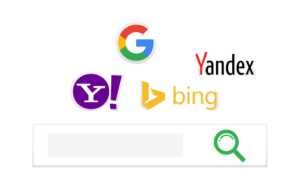As a professional SEO, I often find myself explaining content decay to clients. Typically, I recommend auditing content at least once per year in order to keep a close eye on decay, however, that frequency is often dependent on resources and website size.
In the dynamic world of digital marketing, ensuring your content remains relevant, engaging, and visible in search engine results is a constant challenge. One of the significant factors affecting this challenge is a phenomenon known as “content decay”.
What is Content Decay?
Content decay refers to the process where the traffic and engagement levels of your previously high-performing content gradually diminish over time. As a result, the content’s ranking in the search engine results pages (SERPs) drops, leading to decreased visibility and a potential loss in organic traffic.
This decay can occur due to several reasons, including changes in search algorithms, shifts in user behavior, increased competition, and the simple aging of content.

Why is Content Decay Important to SEO?
Search engine optimization (SEO) is a strategy designed to enhance your website’s visibility on search engines. As Google’s algorithms continue to prioritize high-quality, relevant content, understanding and addressing content decay becomes crucial for maintaining and improving your SEO rankings.
If your content starts to decay and is no longer considered up-to-date or relevant by search engine standards, it can negatively affect your website’s SEO. Over time, this can lead to significant drops in organic traffic, conversion rates, and ultimately, revenue.
Causes of Content Decay
- Content Aging: Over time, most content will naturally become less relevant. This is especially true for time-sensitive or topical content such as news articles, trend analyses, or industry forecasts.
- Changes in Search Engine Algorithms: Google and other search engines regularly update their algorithms, affecting how they rank content. If these changes occur and your content is not optimized accordingly, its ranking might decrease.
- Shifts in User Behavior and Preferences: As trends change, so do user interests and search behavior. Content written to cater to a specific trend or interest might lose its relevance once that trend fades.
- Increased Competition: If more competitors start producing similar content, the increased competition can result in your content’s ranking being pushed down.
Strategies to Combat Content Decay
- Content Refreshing and Updating: Regularly update your content to keep it relevant. This could include adding new information, updating statistics, improving readability, or incorporating recent trends.
- Re-Optimization: SEO strategies and keyword trends evolve over time. Regularly re-optimizing your content based on current best practices can help maintain or improve its ranking.
- Repurposing: Turning your old content into different formats (like infographics, videos, podcasts) can give it a new lease on life, attracting a different segment of your audience and extending its lifespan.
- Removing Outdated Content: In some cases, it may be beneficial to remove outdated or underperforming content entirely, especially if it’s irrelevant or could lead to a negative user experience. Note: don’t forget to create the appropriate redirect, if you remove a URL.
- Continuous Monitoring: Use analytics to monitor the performance of your content. Look out for declining traffic trends and engagement levels as early indicators of content decay.
Understanding content decay and implementing strategies to combat it should be part of any effective SEO strategy. While it’s natural for content to lose relevance over time, actively managing and updating your content can help to mitigate the effects of content decay, thereby ensuring a more robust and sustainable SEO strategy.
Schedule a Consultation
At SEO Succor, we take great pride in helping identify and resolve content decay for our clients.
Contact us today to learn more about us or our work. Read our client reviews to learn more about our results.
Schedule a complementary consultation with one of our digital marketing experts.


